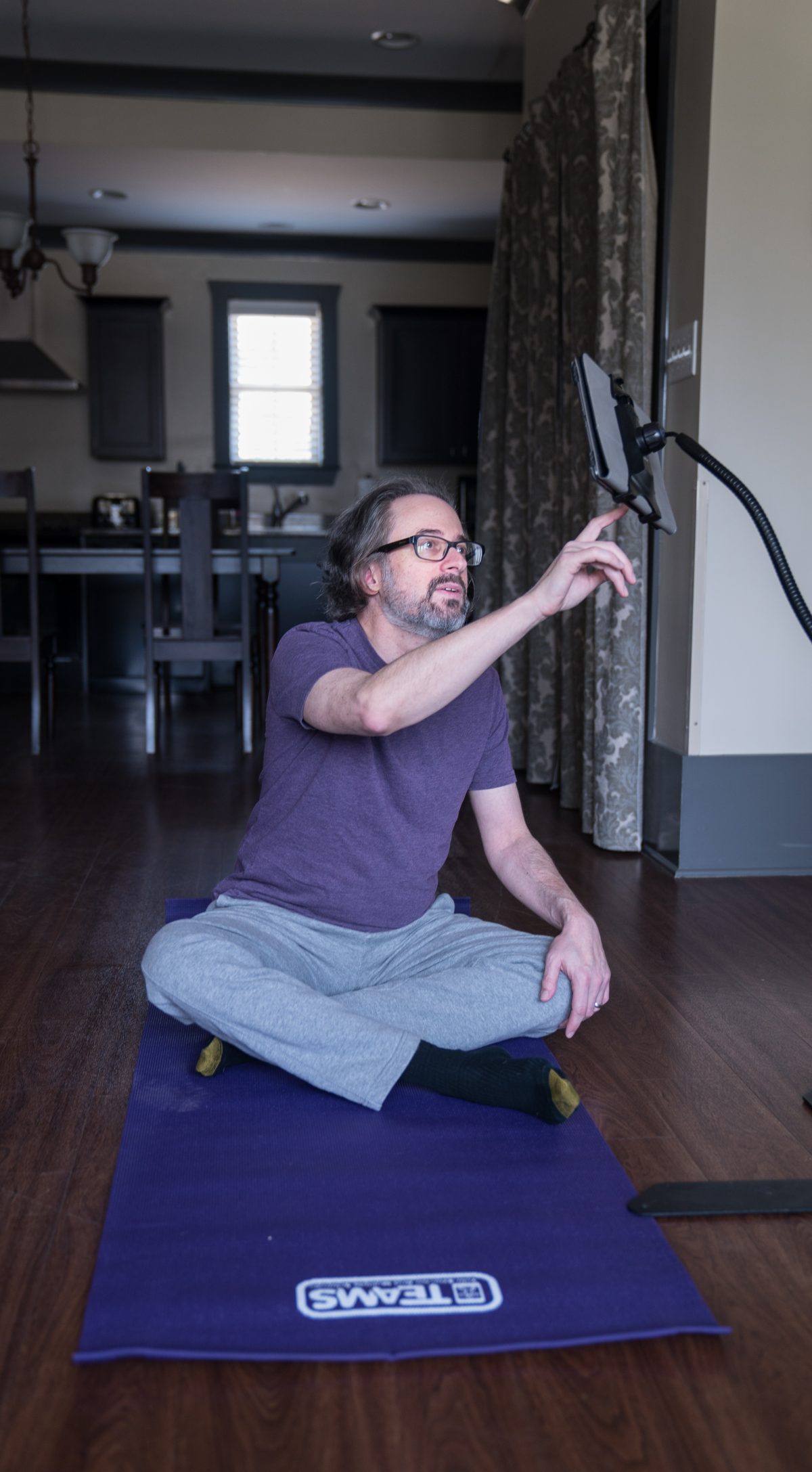I’ve been in health and wellness care for over 35 years, and here’s what I know: the best preventive measure in the world is exercise. Most people understand that even small amounts of exercise can provide substantial health benefits, but most people who acquire a health condition like MS often feel that exercise is no longer an option for them.
I’ve been working with people with disabilities for most of my career, and what I’m passionate about is developing programs that improve the health of those with any kind of mobility disability and make it possible for them to participate in as much activity as they can. When I started my career in 1981 in New York City, I began working with a man who had a progressive form of multiple sclerosis (MS) two nights a week and we developed a wonderful friendship. He became the godfather of my second daughter. Tom taught me a great deal about living with MS. What was particularly striking was that his progressive form of MS was never going to take him down. He exercised throughout the course of his life and rarely missed a session. Exercise not only benefited him from a physical perspective, it also benefited him from a social perspective interacting with his personal exercise trainer. We often went out for dinner after his exercise session and had many engaging conversations.
MS is a neurological condition which affects the nerves and the transmission of nerve impulses. It can affect all areas of neurological function; balance, mobility, cognition. With MS, you don’t quite know the potential progression so the key is to stay in the present moment (which is what mindfulness is all about) and to follow the rules of health, with one of the hallmark ones staying physically active. While many men with MS may prefer sports activity over general types of exercise, they can benefit immensely from engaging in traditional (e.g, cardio, strength training) and non-traditional (e.g., yoga) exercise.
Our current research on MS and exercise, which is being funded by PCORI, is largely meant to prevent/reduce functional limitations and to restore or improve quality of life. The focus of the study is to determine if a complementary and alternative set of exercises using yoga, Pilates and cognitive exercise can achieve the same level of improvement in a clinical vs. home setting. In the home setting, we’re using state-of-the-art technology to reach people with MS who have difficulty finding a clinic that specializes in exercise therapy for people with MS, or do not have convenient and affordable transportation to get there on a regular basis. The key is to improve functional mobility, which these exercises are meant to do, in order for men and women with MS to maintain their physical and mental health and avoid any kind of decline.
What’s been the profoundly interesting thing in this research is how quickly patients came on board to provide their perspectives on living with MS. PCORI is unique in that they require that patients be integrally involved in the research right from the get-go, not just as the end users. My research team and I have found that people feel empowered when allowed to participate.
What surprised me most was how vocal our patient stakeholders were, from the very beginning. They didn’t like using clinical terms like ‘gait’ when talking about walking, so most of the language in our program is more user-friendly. We were trying to come up with what we, the researchers, felt would be the primary outcomes of the exercise—about what the patients would be able to do. Patient advisors had other ideas, they said quality of life should be the major outcome. It’s kind of a proxy for being able to do more- but they firmly believed that quality of life was the most important potential outcome of the intervention. And of course, people who exercise already know that that it’s one of the best ways to maintain quality of life.
We’re still conducting the research to see if the home-based program is as effective as the clinic-based program—but being a part of this research has already had a significant effect on myself and my research team. What we’re finding is that there is a real thirst among patients to have their voices heard and to participate in the meaningful aspects of the research from beginning to end. The number of people signing up for our study — TEAMS, Tele-Exercise and Multiple Sclerosis — has been enormous. I believe that the template that PCORI has created for ensuring that patients are involved in all aspects of the research (even prior to submission of the grant) will be adopted by other federal funding agencies in the future. PCORI knows that the best research can only come from those who live with the condition.
So the take-home message for men living with MS is to never stop exercising and to remember the five M’s to good health: Moving More Means More Mobility. No matter what level or type of MS, exercise is a pathway to good physical and mental health. That’s what our MS stakeholders have told us!




